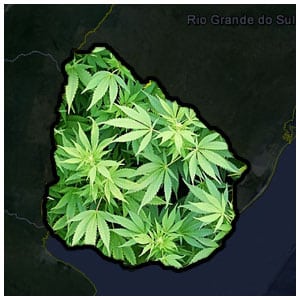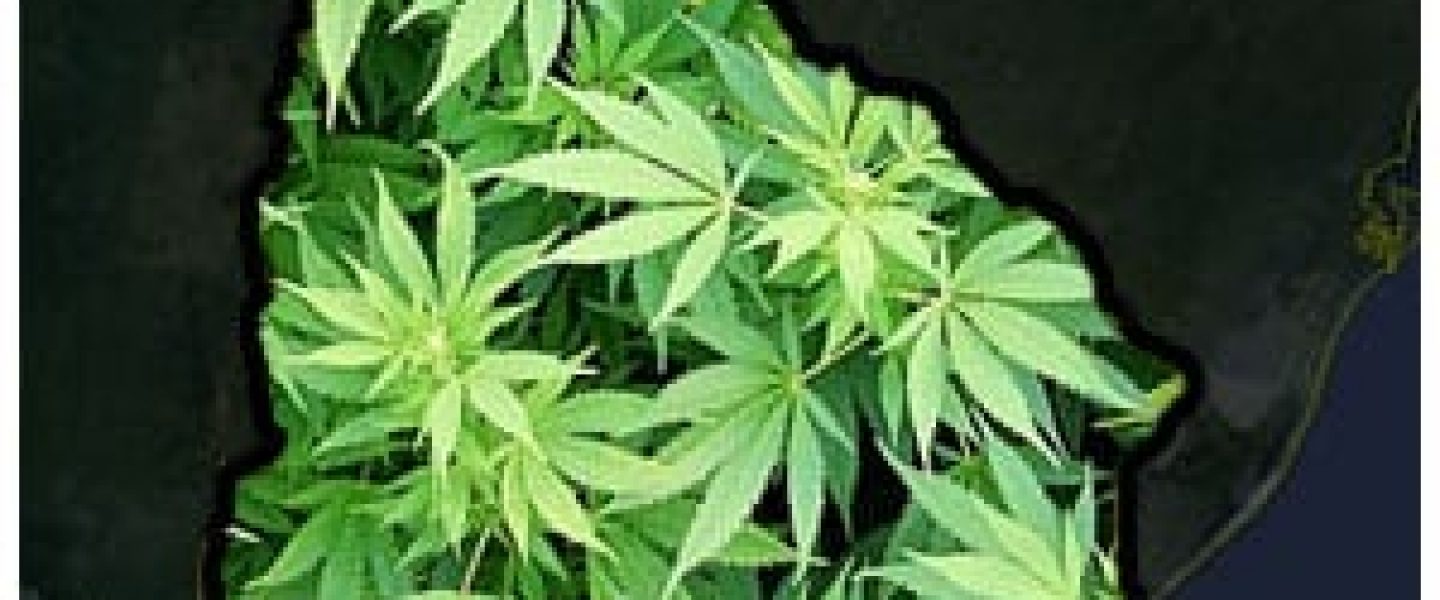 Uruguay’s Senate passed a marijuana legalization bill earlier today, paving the way to make Uruguay the first country to legalize marijuana. The only thing that has to happen now is for Uruguay’s President Jose Mujica to sign the bill, which he has said repeatedly he would do. This is huge folks! How will the UN react? How will America react? How will other South American countries react? I guess only time will tell.
Uruguay’s Senate passed a marijuana legalization bill earlier today, paving the way to make Uruguay the first country to legalize marijuana. The only thing that has to happen now is for Uruguay’s President Jose Mujica to sign the bill, which he has said repeatedly he would do. This is huge folks! How will the UN react? How will America react? How will other South American countries react? I guess only time will tell.
It’s truly an exciting time in marijuana policy. I expect many more nations to legalize marijuana now that the first country has taken the leap. Once other countries see that the sky won’t fall, and that opponents are more bark than bite, they will follow suit. I just hope that the United States isn’t the last country to realize that marijuana prohibition is a failure. Below are a couple of quotes in reaction to today’s events:
“Uruguay’s move today is a pretty clear signal that the global war on marijuana is ending. Last year Colorado and Washington voted to become the first jurisdictions in the world to legally regulate marijuana, and now a whole country is ending prohibition. Next year more U.S. states are likely to vote on legalization, and leaders of other countries in Latin America are talking about the need for a new approach. More politicians here in the U.S. are smartly realizing that a clear majority of American voters supports legalizing marijuana, and it’s only a matter of time before federal law changes. This industry is being brought above-ground and taken out of the hands of drug cartels and gangs, and we’re never giving it back.” – Tom Angell, Marijuana Majority
And from my friends at Law Enforcement Against Prohibition:
MONTEVIDEO-A bill that would legalize and regulate marijuana, putting it under strict governmental control, passed the Uruguayan Senate today after passing the lower house of parliament in July. President Jose Mujica, who proposed the bill as part of a crime-fighting package, has said that trafficking of any drug is usually more harmful than the drug itself, and will sign it in the next few days.
Law Enforcement Against Prohibition (LEAP), a group of law enforcement officials who, after fighting in the war on drugs, now advocate for its end, hailed the move as a win for smart public policy and a loss for drug cartels in the area. They contend that while some drug use is inevitable, by legalizing and regulating marijuana and other substances governments can ensure a safe product, keep it out of the hands of kids, allow police to focus on serious crime and remove one of the biggest sources of income from dangerous criminal gangs.
“Today’s vote means that marijuana will soon be regulated and controlled in Uruguay, thus reducing crime and violence,” said Terry Nelson, LEAP board member who worked for US Customs, Border Patrol and Homeland Security in Central and South America. “Uruguay has taken a strong step towards improving human rights, the rule of law and public safety. I hope that other nations will have the courage to do the same.”
The bill will allow personal cultivation of up to six marijuana plants and will be available at the Ministry of Public Health, licensed pharmacies and at clubs of anywhere from 15 to 45 registered members. It also has strict rules, including that no one under 18 can use marijuana for any reason; provides for drug use prevention education; prohibits advertisements for marijuana and enacts strict penalties for violators. The bill also provides for a period of 120 days to write more detailed regulations.
Uruguay has been praised by former Brazilian president and chair of the Global Commission on Drug Policy, Fernando Henrique Cardoso; 65 Mexican legislators and more than 100 global organizations for enacting the new policy. The move comes only days after a UK Guardian investigation discovered a leaked UN document revealing many member states’ skepticism of continuing the war on drugs.
Law Enforcement Against Prohibition is a nonprofit group of police, prosecutors, federal agents, judges, corrections officials and other law enforcement officials opposed to the war on drugs.








